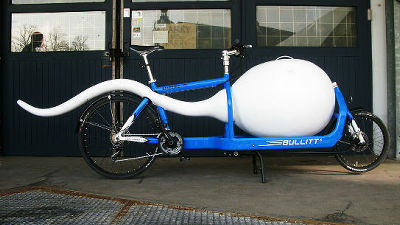Two "clone monkeys" with exact same genes in China finally born
A research team at the Chinese Academy of Sciences announced to the American scientific journal that two cynomolgus monkeys of "clones" with exactly the same genes as the original individuals were born. At least as a result of being released, it is the birth of individuals by clones for the first time as animals belonging to the same "primate" as human beings, and the discussion about the pros and cons is likely to be further enhanced.
Cloning of Macaque Monkeys by Somatic Cell Nuclear Transfer: Cell
http://www.cell.com/cell/fulltext/S0092-8674(18)30057-6
Two cloned monkeys birth Chinese team, ethical issues also: Nihon Keizai Shimbun
https://www.nikkei.com/article/DGXMZO26084340U8A120C1CR8000/
The Chinese Academy of Sciences announced the success of the cloned monkey on January 24, 2018, electronic version of the American scientific journal "Cell". Two monkeys that were "produced" by using somatic cell cloning technology have already survived after 50 days since the birth. The two are named "Zhong Zhong" and "Hua Hua", respectively, but their origin seems to be taken from "China" meaning "country of China" and "Chinese people". Therefore, the notation of kanji should be "medium" and "gorgeous".

The research team injected the nucleus of the fetus of cynomolgus monkey and transplanted 79 eggs to which 2 growth-promoting genes were added into the uterus of 21 female monkeys. Six of them were pregnant and eventually two Zhong Zhong and Hua Hua were born.

For the cloned creatures, the cloned sheep, which was born in 1996 and shocked the worlddollyVarious discussions are taking place as a trigger. It focuses on the question of whether human beings intervene in the process of life birth, which is said to be the "realm of God", and the ethical question that sufficient discussion has not been made on the identity of the organisms born by it is. In particular, it is strongly worried that it leads to a situation in which life is disregarded by "making artificial" creatures including humans. On the other hand, however, there is a strong opinion that the value as a development of pure science should not be impaired, and the discussion is being exchanged over its pros and cons.
About the birth of the cloned cynomolgus monkey at the Chinese Academy of Sciences Neurological Institute Neuroscientific Institute President Kamiaki Kamamoto said at a press conference that "the purpose is not to create cloned humans but to contribute to human health and medical care." Mr. Kamata also states, "I expect that the idea of Western society will gradually change by demonstrating the usefulness of cloned monkeys for disease treatment."

Related Posts:








